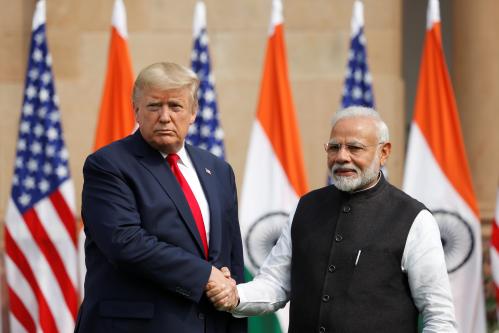The independent experts (or ‘Special Procedures’) appointed by the UN to monitor human rights worldwide are the ‘jewel in the crown’ of the UN system – the new High Commissioner needs to move quickly to defend their independence and ensure they get the support they need.
As Prince Zeid Ra’ad Zeid al-Hussein of Jordan (Prince Zeid) takes the helm of the UN human rights system, he should pay close attention to the body of independent experts (collectively known as the Special Procedures) who serve as the UN’s eyes and ears on human rights problems around the world.
The demands on the Special Procedures mechanism – the “jewel in the crown” of the United Nations human rights system – have done nothing but grow since the first mandate was established in 1967. The number of thematic and country mandates now exceeds 50, up from 38 just ten years ago, and is expected to grow exponentially if it keeps the current pace.
However, commensurate support in staffing and resources has not materialized, hobbling the system from effectively delivering on these elevated expectations. Of the three main pillars of the UN system, human rights receive only 3% of the regular UN budget; of that, Special Procedures receives only 12.8%.
Nevertheless, Special Procedures still manage to have measurable and significant impact on the ground, focusing the attention of states, media and human rights defenders alike on serious abuses around the world and proposing recommendations to address them. Their unique flexibility in addressing a wide range of human rights issues through country visits, normative reports and urgent communications set them apart from other human rights mechanisms. But the current situation is unsustainable.
A recent joint report by Brookings and the Universal Rights Group examines Special Procedures in depth and offers almost 30 recommendations to states, mandate-holders and the Office of the High Commissioner for Human Rights (OHCHR) to strengthen the long-term effectiveness of the mechanism. Unique among these actors in visibility and leadership capacity, the UN High Commissioner for Human Rights is in a strong position to lead not only in reforming the system, but also in supporting the vital work of the Special Procedures. It will be especially important that the newly appointed High Commissioner tackles the emerging dilemmas facing the independent experts when he picks up the torch in September.
In order to support and strengthen the Special Procedures mechanism, Prince Zeid will need to rapidly take the following steps:
- Early on, show explicit support for the independence and value of Special Procedures. This is indispensable to preserving and enhancing the credibility of the mechanism, which is regularly met with criticism from combative states like China, Russia and Cuba who, in an effort to dilute the international human rights order, argue that it intrudes on state sovereignty. During the September session of the Human Rights Council, four new mandate-holders will be nominated by the Consultative Group. Prince Zeid should leverage this opportunity to encourage the Human Rights Council to appoint highly qualified experts with a proven track record of relevant international experience. He should continue to do so throughout his tenure. He should also signal his willingness to protect the independent experts from political interference from states that seek to undermine their work, and endorse the current self-regulating process for alleged infractions of mandates.
- Task the OHCHR bureaucracy to better support the work of Special Procedures, including through supplying sufficient staff and budget resources. Independent experts serve pro bono and are heavily strapped for funding. The limited support they receive in Geneva is especially volatile as staff often work for more than one mandate-holder or balance other additional responsibilities, and the Office in general experiences a high degree of turnover. This is especially problematic because OHCHR staff are key to arranging country visits, processing petitions, drafting reports and managing other facets of Special Procedures’ functions. By ensuring adequate professional staffing and enforcing a fair distribution of limited resources, the High Commissioner can more effectively support the important work of the Special Procedures, independent of any other systemic reforms. It is also critical that new mandate holders receive better training, including in the politics of their role, when they assume their duties and that their predecessors properly communicate their institutional knowledge and helpful hints from their on-the-ground experiences.
- Lead the charge in New York to double the budget for human rights from 3% to 6% of the overall UN budget. This important expansion should take place by 2016, the ten year anniversary of the establishment of the Human Rights Council. The UN’s budget should better reflect human rights as one of the three fundamental priorities of the UN system and by extension better support the work of Special Procedures. This requires the High Commissioner to take a leadership role in urging the Fifth Committee in New York to fully fund the activities demanded of Special Procedures and the OHCHR by member states at the Human Rights Council in Geneva. This is the most sustainable source of funding available. He could supplement this effort by helping to raise voluntary funds from member states for the Special Procedures branch as these funds will continue to be a significant component in the budget for the foreseeable future. Appointing a focal point to coordinate these efforts and cultivate funding opportunities would aid in accomplishing the task and institutionalizing this priority.
In order to accomplish the broader goal of supporting and strengthening Special Procedures, member states and other stakeholders will of course need to do their part. But strong leadership from the new High Commissioner is critical to setting and executing an institution-wide agenda that ensures proper attention is paid to this objective. Prince Zeid should make clear that the work of the Special Procedures is a key policy priority for his tenure, manage staff and resources effectively to emphasize and strengthen the mechanism, and design a strategy that encourages the international community to appreciate and properly resource the important work its mandate-holders undertake in the promotion and protection of human rights globally.
This piece originally appeared on
openDemocracy
.
The Brookings Institution is committed to quality, independence, and impact.
We are supported by a diverse array of funders. In line with our values and policies, each Brookings publication represents the sole views of its author(s).


Commentary
Op-edImproving the Special Procedures: Three Tips for the High Commissioner for Human Rights
July 9, 2014